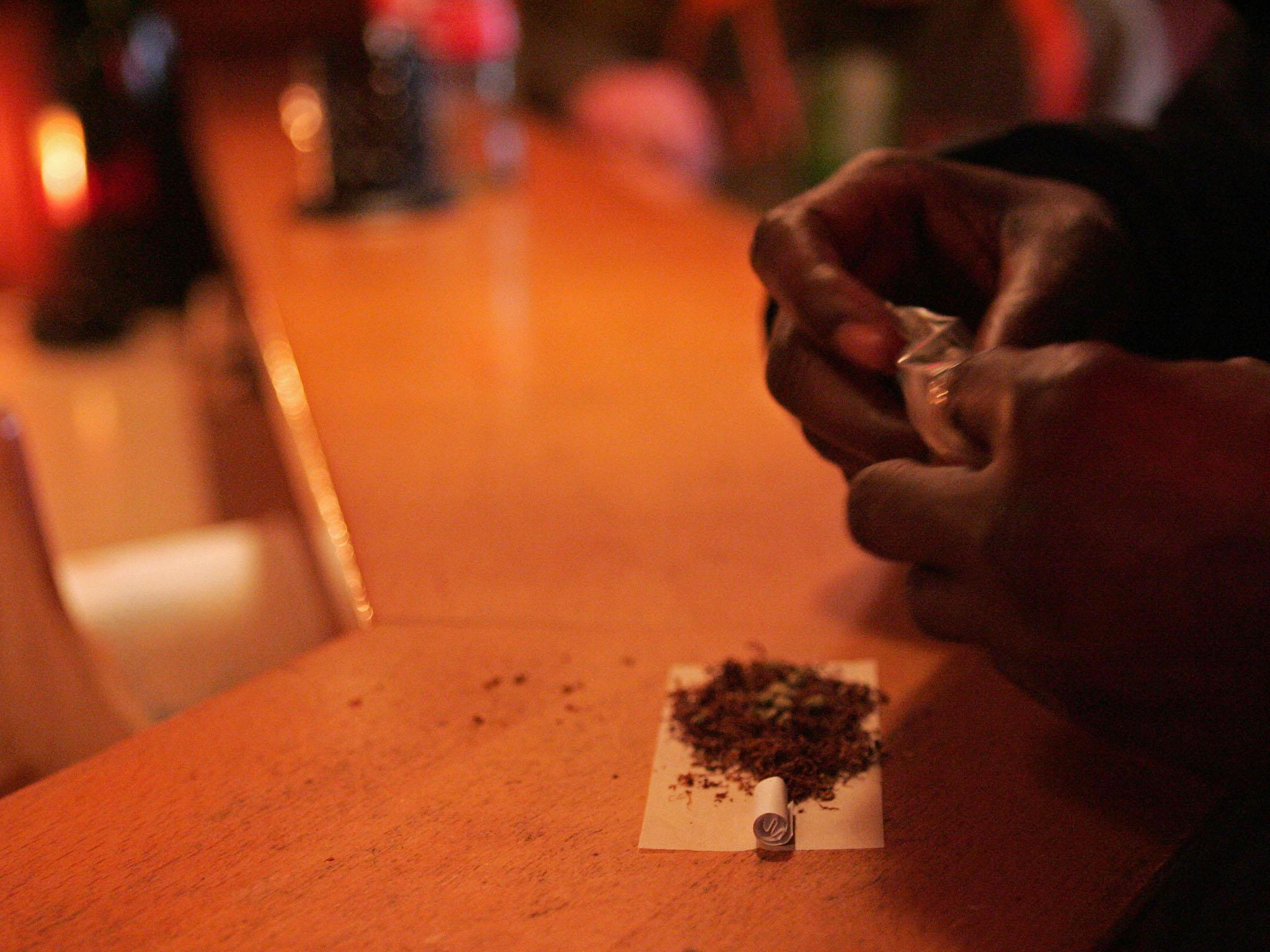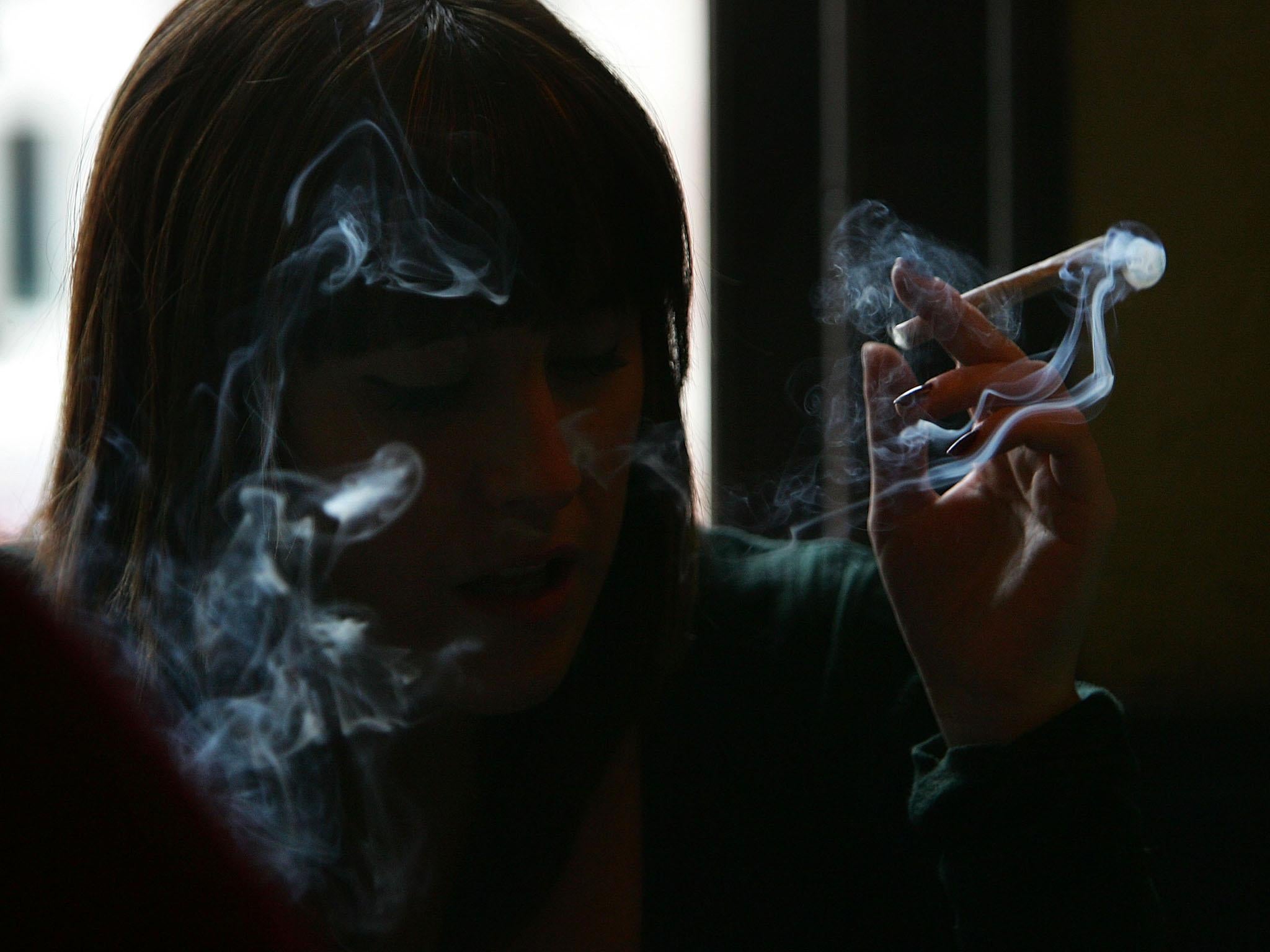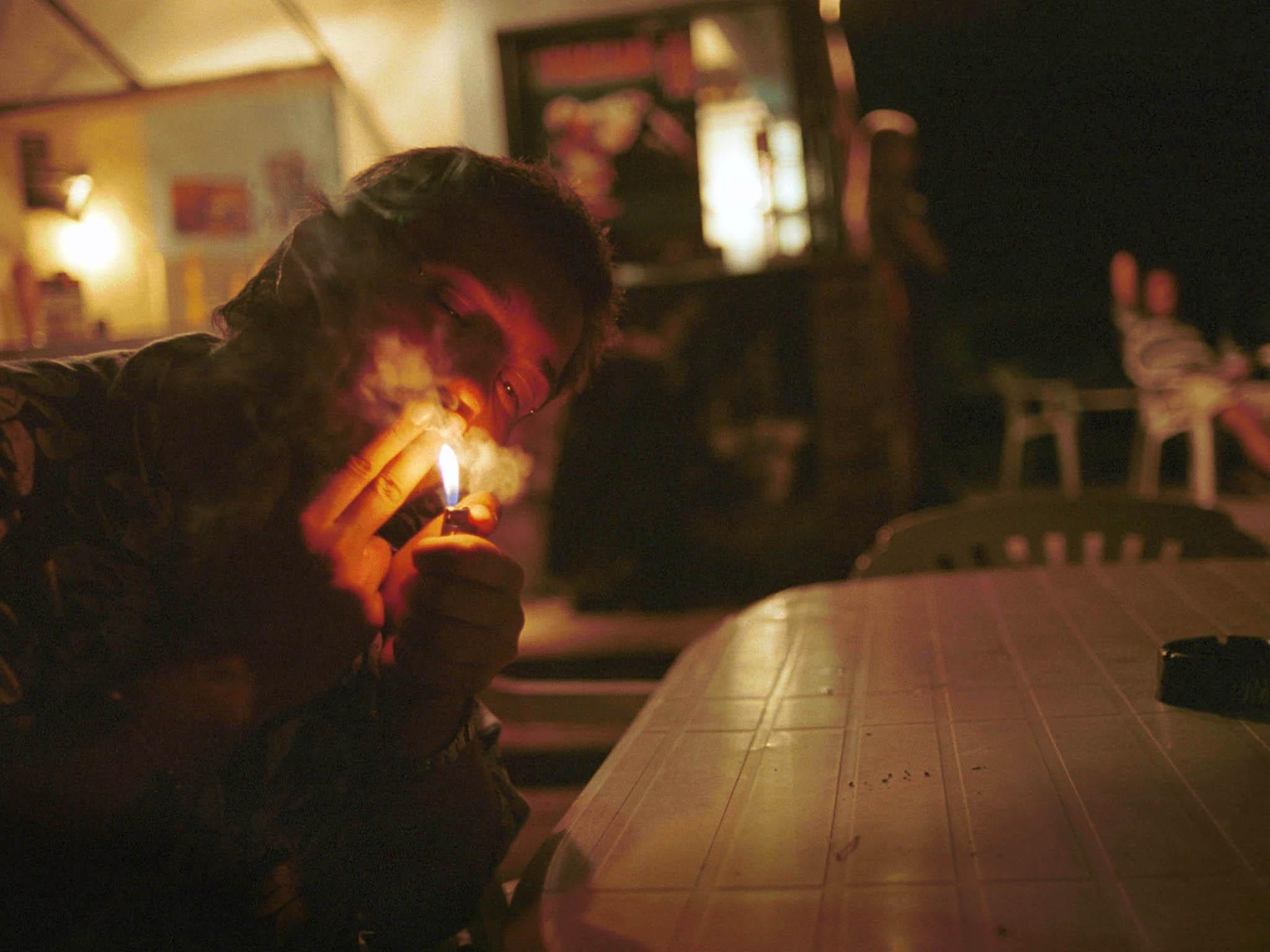Britain is developing a weed café culture under the radar
Enterprising youths are providing an in-demand product that governments around the globe are regulating and taxing

Your support helps us to tell the story
From reproductive rights to climate change to Big Tech, The Independent is on the ground when the story is developing. Whether it's investigating the financials of Elon Musk's pro-Trump PAC or producing our latest documentary, 'The A Word', which shines a light on the American women fighting for reproductive rights, we know how important it is to parse out the facts from the messaging.
At such a critical moment in US history, we need reporters on the ground. Your donation allows us to keep sending journalists to speak to both sides of the story.
The Independent is trusted by Americans across the entire political spectrum. And unlike many other quality news outlets, we choose not to lock Americans out of our reporting and analysis with paywalls. We believe quality journalism should be available to everyone, paid for by those who can afford it.
Your support makes all the difference.You buzz the doorbell upon arrival, wait for the door to open then climb a narrow set of stairs before reaching a formidable security door. A guy watching several CCTV screens lets you in. If it’s your first time they’ll check out your ID and jot your name down, perhaps in case there’s a fire drill, but most likely to remind you that they know who you are.
Teens slouch in corners speaking in hushed tones as others play FIFA against each other on a widescreen TV. Mos Def’s debut album Black on Both Sides blares out on the stereo while Mist’s “Ain’t The Same” gets played off someone’s phone.
Because above an outlet of a popular brand, on a busy high street, sits a café where you can buy cannabis and then sit, chill and smoke it.
Thick fumes escaping from the tips of countless lit joints quickly dissipate and escape through a solitary ventilation shaft. The windows are blacked out and kept shut. This is a place where a cross-section of young adults can meet and bond over common concerns.
Obviously it’s illegal and that’s what gives it a prohibitionist current. We all know that what we’re doing is, by-the-book, wrong – but it shouldn’t be. It’s probably safe to say cannabis café culture won’t remain underground in the UK forever. But, unlike women in Saudi Arabia getting the right to drive, it won’t happen overnight.
Nonetheless, the tailwinds of drug reform globally have an unmistakably cannabis-infused aroma: the smoke is blowing in the right direction for marijuana advocates. In Uruguay you can now smoke anywhere, states and provinces in the US and Canada are decriminalising and legalising at some pace and in Holland and Jamaica it’s been cool for a while.
There is bipartisan support for legalisation among MP’s in the UK. However, the only pro-legalisation party, the Liberal Democrats, failed to increase their share of the vote this year while Labour remain opposed to legalisation although Corbyn has said he’s in favour of decriminalisation for medicinal use.

As for the Tories, well, they say there is clear scientific and medical evidence that cannabis is a harmful drug. This leaves the £6.8bn marijuana industry in the hands of people like the trailblazing entrepreneurs behind this business, along with street dealers and home growers.
It is these people who cater to the demand of hundreds of thousands of pot-smoking Londoners. There are reportedly at least six clandestine smoking hot-spots in and around the City and it’s a growing trend, although places like this have existed across the UK for years.
This particular café bears a certain resemblance to its cousins in Amsterdam although the choice of products isn’t exactly overwhelming. They sell two strains of weed and one of hash, along with various edibles. Unlike other actual cafés, they do not sell hot beverages but the products are of a high standard and the weightage is fair at £10 per gram.
Where the goods are sourced from is unknown. Cannabis farms have recently been discovered in Darlington and Liverpool but the weed is probably imported from Holland and the hash from the Middle East. Canned drinks and Capri-Suns are also on sale, sold for a pound apiece, along with other confectionery items such as Snickers and Skittles.
Speaking to the café’s predominantly male patrons you get the sense that visiting the café is part of their routine, since buying stuff on the street or even from dealers who visit your house can be risky and stressful. “I drop into the café occasionally because it’s way safer than picking up off the street for many reasons,” says one customer matter-of-factly, after asking for a Rizla. “Usually street dealers overcharge and try to upsell you on coke or stronger stuff.”
“Even with someone good you can’t be guaranteed you’ll get good stuff,” he adds. “I find a lot of them give you good, high quality bags when you haven’t bought in a while, then they give you crap after that.” Here, though, he says, you’re occasionally given a big discount for being a regular customer. Plus, a bottle of beer is £2. “You can’t go wrong.”
Another pot-smoker echoed his remarks; the biggest pull is the reliability factor. “It’s somewhere relaxed and safe to buy and consume good quality hashish,” he said, fiddling with a bandana. “Dealers on the street are notoriously unreliable and deceitful but the guys who run the café are friendly and make it a cool spot to hang out in.”
It’s not quite a home away from home. Uncomfortable benches which meet the wall at perpendicular angles sit where sofas ought to; an expanse of floor sits empty, crying out for a beanbag or two. Nonetheless, it’s certainly a fun place to hang out and meet people that you might not have met otherwise, had it not been for your shared penchant. But how did we all end up in the same flat?

The café surreptitiously advertises their new products on social media and communicates on encrypted messaging portals. It’s probably more difficult to police than you would think though. Plenty of flats have a constant stream of people coming in and out: most people wouldn’t think anything of it.
Many cannabis clubs openly advertise the fact that they sell weed over-the-counter but because they do not attract any trouble, they’re often left alone by the law. This may also be down to changing attitudes towards the herb. The NHS recently prescribed cannabis oil for the first time ever, to a young boy who was suffering in excess of 100 life-threatening epileptic fits a day. A daily dose of the plant’s extract has made his condition manageable.
Next month, the UK will host what is reportedly its first medical cannabis conference as pharmaceutical companies jockey to be front of the queue if and when the UK beckons them to help build what is a huge-growth industry elsewhere. The Adam Smith Institute argues that the Government cannot just put its head in the sand over calls to legalise cannabis. “The main harms of criminalisation come from putting it into the black market, and in the knock-on effect on the criminal justice system,” said Daniel Pryor, education manager at the institute, to the Telegraph last month.
“In the medium term we see decriminalisation as a possibility. If the Conservatives want to reconnect with young voters it would be a very good way of demonstrating they’re in tune with their concerns.” For many stoners, though, their daily habits are already much the same as other smokers in countries that have legalised.
Durham Police announced earlier this year that they have no interest in pursuing low-level cannabis offenders and, reportedly, a slew of other forces have followed suit and downgraded policing the private consumption of marijuana in their priorities. By the letter of the law, due to weed’s class B status, a user can face possession charges of a mandatory 28 days for 3 offences of possession.
But given the light touch police seem to now adopt with indoor cannabis smokers, it’s unlikely that will be enforced consistently. In the café at least, the fear of anything disturbing the serenity seems a far-flung thought. Recently however, after prolonged complaints from the restaurateur downstairs, it was moved to a different location. The previous one’s single air vent caused the marijuana smell to linger and cloud the aroma of the cuisine.
A note stapled onto the door says: “Premises upstairs is closed. Please don’t come back. It’s being monitored by the police”. I text the contact number I had from before, get the address for the new spot around the corner and head off. As ever in the war on drugs, the authorities are in a game of cat and mouse and they’re increasingly losing the argument.
Join our commenting forum
Join thought-provoking conversations, follow other Independent readers and see their replies
Comments